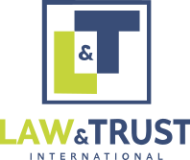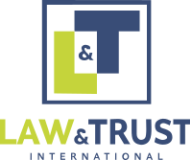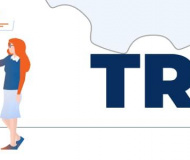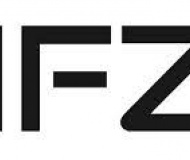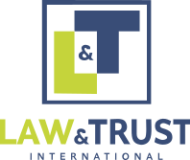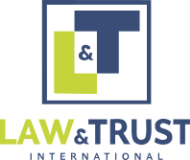Initial Coin Offerings
News:
Date added: 28.07.2017
A sharp rise in the price of Bitcoin, perhaps, is the cause of artificial inflation of the economic recovery of assets and unreasonable buying up of securities (fuelling an asset bubble).
Capital and investment raising activities need to be regulated to protect investors. The form of the activity i.e. that an ICO issues crypto tokens rather than stocks and bonds is irrelevant to the substance of the activity, which is raising capital from the general public.
Lack of regulation around ICOs is only creating incentives for coin issuers to misbehave. In addition, there is a century of securities markets regulation and several years of crowdfunding regulation now that can be tailored and applied to ICO offerings.
The ‘decentralised’ form of public cryptocurrency networks poses interesting implementation challenges for regulators as far as tailoring the existing regulations is concerned.
A DAO can be created on the public ethereum network to efficiently implement what’s a decentralised analogue of existing regulatory obligations, or at least the intent of these regulations.
Such an effort may indeed be funded by coins issued in an ICO.
What are ICOs?
The Financial Conduct Authority in the United Kingdom in its discussion paper on distributed ledger technology have described ICOs as follows:
"Since the release of the first version of Bitcoin in 2009, a variety of applications have been built on top of the Bitcoin network to enable people to keep and trade Bitcoin for services or to realise a return on capital.
These applications have been replicated on other public DLT networks and include wallet providers and digital currency ’savings accounts’ which pay a regular return in digital currency. Firms have also used ’Initial Coin Offerings’ to fund themselves".
Some start-ups in the DLT space have used ‘initial coin offerings’ to raise capital at early stages of their development. A start-up will issue their own proprietary cryptographically secured DLT tokens which give investors the opportunity to realise capital growth. If the startup manages to issue sufficient tokens, digital currency exchanges may make a market in these tokens which might drive up the value (often determined in digital currencies such as Bitcoin or Ether).
Initial coin offerings, therefore, have various parallels with Initial Public Offerings, private placement of securities or crowd sales.
Depending on how they are structured, they may, therefore, fall into the regulatory perimeter.
There are many different types of blockchain tokens, each with varying characteristics and uses. Certain blockchain tokens, like Bitcoin, function as a digital currency. Others can represent a right to such tangible assets as gold or real estate.
Blockchain tokens can also be used in new protocols and networks to create distributed applications. These tokens are sometimes also referred to as App Coins or Protocol Tokens. These types of tokens represent the next phase of innovation in blockchain technology, and the potential for new types of business models that are decentralized - for example, cloud computing without Amazon, social networks without Facebook, or online marketplaces without eBay.
The DAO is a digital decentralized autonomous organization and a form of investor-directed venture capital fund.
How do existing regulatory frameworks apply?
There are a number of difficult legal questions surrounding blockchain tokens. For example, some tokens, depending on their features, may be subject to US federal or state securities laws. This would mean, among other things, that it is illegal to offer them for sale to US residents except by registration or exemption.
Similar rules apply in many other countries. The Framework focuses on US federal securities law because these laws pose the biggest risk for crowdsales of blockchain tokens.
In many jurisdictions, there may also be issues under anti-money laundering laws and general consumer protection laws, as well as specific laws depending on what the token actually does.
Securities Law
The Federal Securities Laws are most likely to render a number of coin offerings illegal or impermissible and therefore focuses on whether an ICO is an investment contract and therefore on what's known as the Howey test.
"The US Supreme Court case of SEC v Howey established the test for whether an arrangement involves an investment contract. An investment contract is a type of security.
In the context of blockchain tokens, the Howey test can be expressed as three independent elements (the third element encompasses both the third and fourth prongs of the traditional Howey test).
All three elements must be met in order for a token to be a security.
1. An investment of money
2. In a common enterprise
3. With an expectation of profits predominantly from the efforts of others"
What the ICO promoters need to do to avoid falling in the perimeter of the Howey test? This includes mainly transparency measures e.g. publishing a white paper, committing to a development roadmap, using an open public blockchain, publishing all the code, using clear/logical/fair pricing in the token sale, determining the percentage of tokens set aside for the development team, etc.
Crowdfunding Rules
ICOs have drawn the attention of respected mass market publications as Fortune and the Economist, both of which indicate that there may be a bubble and investor protection issues involved.
It turns out there are regulations governing crowd sales that recognize that compliance with federal securities laws can be extremely onerous and expensive for an ICO issuer.
However, even if an ICO issuer manages to avoid federal securities laws either out of good intentions or because of outright fraudulent intent, it is going to be very difficult for the issuer to avoid crowdfunding regulations.
The final rules regulating crowdfunding permit individuals to invest in securities-based crowdfunding transactions subject to certain investment limits.
The rules also limit the amount of money an issuer can raise using the crowdfunding exemption, impose disclosure requirements on issuers for certain information about their business and securities offering, and create a regulatory framework for the broker-dealers and funding portals that facilitate the crowdfunding transactions.
Definition of Crowdfunding
Crowdfunding is a relatively new and evolving method of using the Internet to raise capital to support a wide range of ideas and ventures. An entity or individual raising funds through crowdfunding typically seeks small individual contributions from a large number of people.
Individuals interested in the crowdfunding campaign – members of the “crowd” – may share information about the project, cause, idea or business with each other and use the information to decide whether to fund the campaign based on the collective “wisdom of the crowd.”
The crowdfunding provisions of the JOBS Act were intended to help provide startups and small businesses with capital by making relatively low dollar offerings of securities, featuring relatively low dollar investments by the “crowd,” less costly".
Final Rules
An issuer is permitted to raise a maximum aggregate amount of $1 million through crowdfunding offerings in a 12-month period;
Individual investors, over the course of a 12-month period, are permitted to invest in the aggregate across all crowdfunding offerings up to:
1. If either their annual income or net worth is less than $100,000, then the greater of: $2,000 or 5 percent of the lesser of their annual income or net worth.
2. If both their annual income and net worth are equal to or more than $100,000, then 10 percent of the lesser of their annual income or net worth; and
3. During the 12-month period, the aggregate amount of securities sold to an investor through all crowdfunding offerings may not exceed $100,000.
Disclosure Requirements
Among other things, in its offering documents, the issuer is required to disclose:
1. Information about officers and directors as well as owners of 20 percent or more of the issuer;
2. A description of the issuer’s business and the use of proceeds from the offering;
3. The price to the public of the securities or the method for determining the price, the target offering amount, the deadline to reach the target offering amount, and whether the issuer will accept investments in excess of the target offering amount;
4. Certain related-party transactions;
5. A discussion of the issuer’s financial condition; and
6. Financial statements of the issuer that are, depending on the amount offered and sold during a 12-month period, accompanied by information from the issuer’s tax returns, reviewed by an independent public accountant, or audited by an independent auditor.
Private Placements
ICOs that can escape the securities and crowdfunding definition will typically fall into the private placement bucket. The SEC describes private placements as:
"A securities offering exempt from registration with the SEC is sometimes referred to as a private placement or an unregistered offering.
Under the federal securities laws, a company may not offer or sell securities unless the offering has been registered with the SEC or an exemption from registration is available."
Private placements are not subject to some of the laws and regulations that are designed to protect investors, such as the comprehensive disclosure requirements that apply to registered offerings.
Despite not being subject to the same disclosure obligations as registered offerings, private placements are subject to the antifraud provisions of the federal securities laws.
Any information provided must be true and may not omit any material facts necessary to prevent the statements made from being misleading.
It may be difficult or impossible to recover the money you invest in an offering that turns out to be fraudulent. In addition, even though the offering may be exempt from SEC registration, the offering may have to separately comply with state securities laws, including state registration requirements or a state exemption from registration.
Companies relying on a Reg D exemption do not have to register their offering of securities with the SEC, but they must file what’s known as a "Form D" electronically with the SEC"
What's Actually Going on In The Real World?
Surprisingly, to date, there were no public action from the SEC on any of the numerous crowd sales. In the meantime, there are some attempts at 'self-regulation'.
Thus, existing investor protection rules, in particular the registration and disclosure requirements under the 1934 act, or similar should apply to large ICOs whereas at the minimum, reg crowdfunding requirements should apply to small ICOs.
Where an ICO chooses to pursue an exemption under reg D, the ICO promoters should claim an exemption and be governed by existing private placement requirements as the case may be.
This applies to where an ICO is offered or sold to US persons. Most OECD jurisdictions have similar regulations for securities registration, crowdfunding and private placements, which should apply.
- These regulations can be tailored to the decentralised nature of cryptocurrency networks.
- These regulations can be implemented much more efficiently due to the transparent nature of public blockchains and smart contract technology.
Contact the lawyers of Law&Trust International for more detailed information regarding this issue. Consultations are possible by phone, through chat or during personal conversation at the company's offices.


